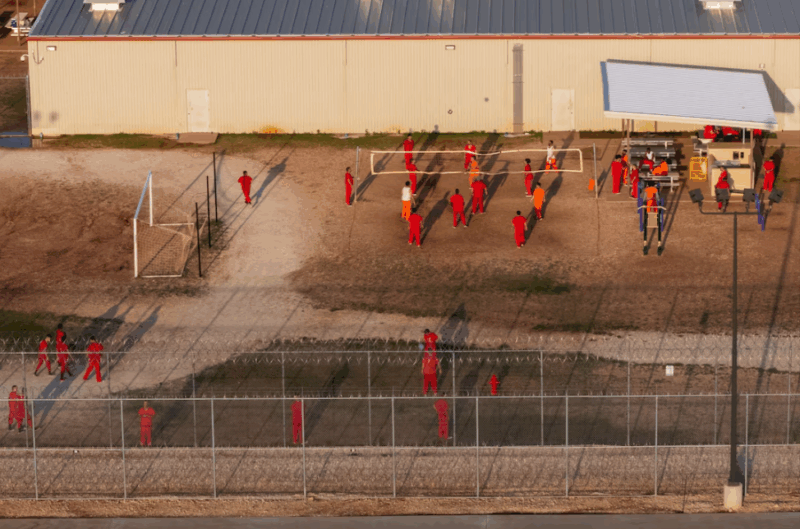
President Donald Trump’s administration moved a Venezuelan man who had worked in construction in Philadelphia to Texas for possible deportation after a federal judge had issued an order blocking his removal from Pennsylvania or the United States, according to court records.
A plane transporting the man took off on April 15 from an airport in the state capital Harrisburg about a half hour after U.S. District Judge Stephanie Haines issued an order temporarily blocking the administration from moving him out of her western Pennsylvania judicial district or the country, Justice Department lawyer Laura Irwin told an April 17 hearing, conducted as a conference call.
The Venezuelan, referred to in court papers as “A.S.R.,” was then brought to the Bluebonnet Detention Center in Anson, Texas, according to the government and American Civil Liberties Union, which represents him.
The administration has not been accused of violating the order by Haines, appointed by Trump during his first presidential term, by sending the man to Texas. But his transfer demonstrates the administration’s aggressive tactics to try to swiftly deport Venezuelan migrants it accuses of being members of the criminal gang Tren de Aragua even as various courts including the Supreme Court impose restrictions.
Representatives of the Justice Department, Department of Homeland Security and White House did not immediately respond to requests for comment.
Details about the transfer of A.S.R. were revealed in three court filings by his lawyers and a transcript of the April 17 hearing, all previously unreported.
He was believed to be among dozens of Venezuelans at the Bluebonnet facility who the Trump administration had tried to deport last week under a 1798 law called the Alien Enemies Act that historically has been used only in wartime, the ACLU said.
That deportation effort was blocked by an emergency ruling by the Supreme Court last Saturday.
Trump invoked the Alien Enemies Act in March as legal justification for deporting hundreds of men his administration accused of being Tren de Aragua members to a prison in El Salvador under an arrangement in which the United States is paying the Central American nation $6 million. It is part of Trump’s hardline approach toward immigration.







